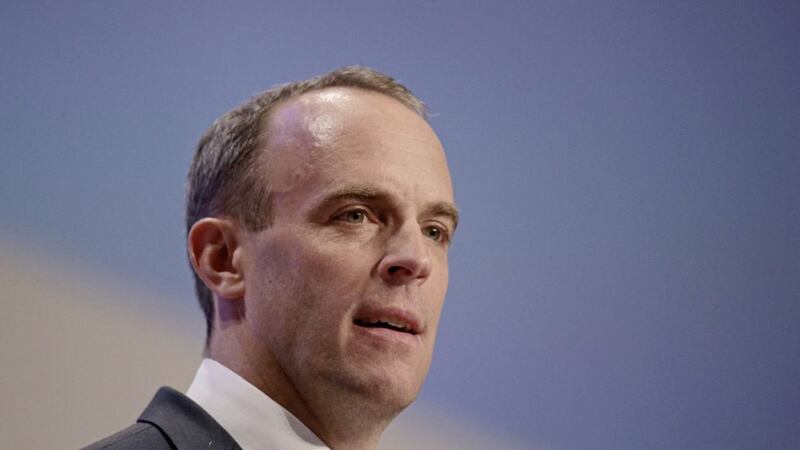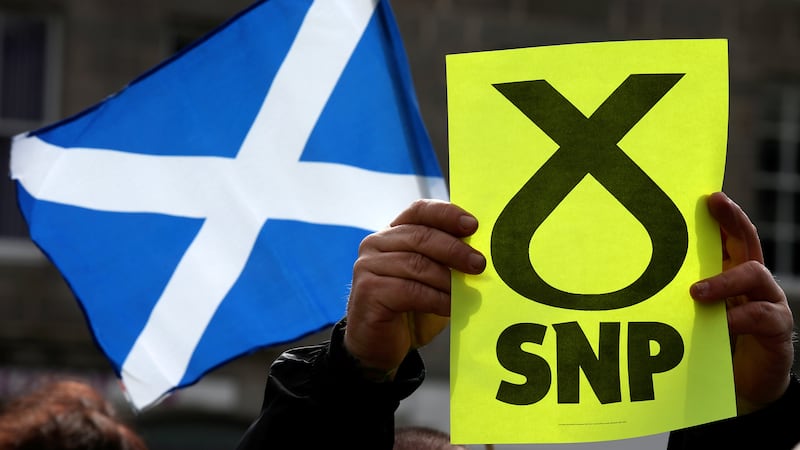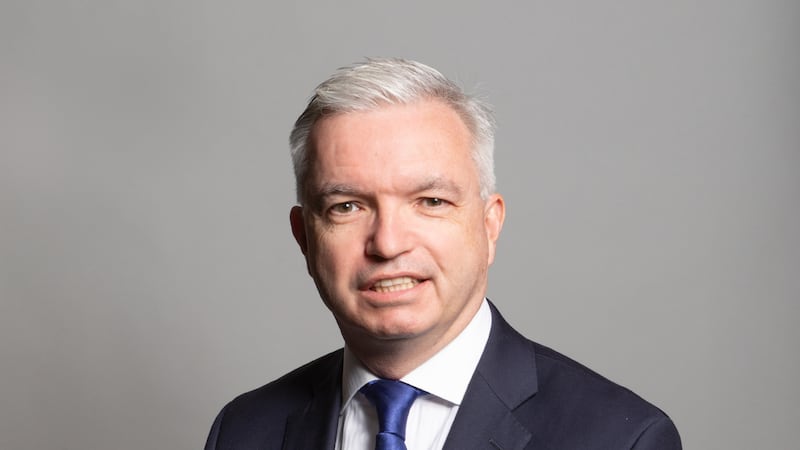FORMER Brexit secretary Dominic Raab has accused Leo Varadkar of leaking details of a confidential meeting he held with the tánaiste.
Mr Raab also accused the taoiseach of giving out "inaccurate" information about his Brexit proposals following his meeting with Simon Coveney last October.
The Telegraph and Financial Times reported that Mr Raab had insisted Britain has the right to pull out of the backstop after three months.
Speaking to the Northern Ireland Affairs Committee at Westminster yesterday, Mr Raab claimed this information was leaked by "the taoiseach directly".
A spokesman for Irish government denied the claim, saying: "There is no basis to this allegation. Mr Raab should produce evidence to support it if he has any."
Read More:
- Analysis: Hope of last minute concessions from Brussels is misplaced
- Dominic Raab says he was advised not to stop at border during visit
- DUP's Sammy Wilson should apologise for 'chippy' remark says SNP's Ian Blackford
- Jacob Rees-Mogg's involvement in DUP fundraiser 'frustrating' says Northern Ireland Tory
Mr Raab said: "The conversation I had with him (Mr Coveney) was leaked to the media in terms which were not factually accurate, in terms of the proposal that I had put forward, privately and confidentially at his request.
"It was leaked in an inaccurate and misrepresenting way by the taoiseach directly."
St Helens North Labour MP Conor McGinn said it was a "very serious accusation" to make against the Irish government.
Mr Raab added: "Everyone in the UK Government knows the approach that I have been suggesting in relation to the Brexit mechanism, knows that's not what I have argued for within the UK Government let alone to my Irish friends."
He described his meeting with Mr Coveney as "very constructive".
Mr Raab added: "We both wanted to make this work, I found him a great interlocutor and I urged him not to rule out looking at some of the other opportunities and mechanisms in dealing with the exit from the backstop and we agreed, at his request, to keep the meeting confidential.
"Check the media, I did not comment on it, it was only commented on not by Simon Coveney but by the taoiseach, so ask the question of whether the account of what I was proposing was what the taoiseach leaked to the media or presented to the media.
"I don't the know the conversation Simon Coveney had with the taoiseach and I don't understand what motivation may or may not have been.
"All I'm telling you is that is simply not what I discussed or what I was proposing and I have kept it confidential."
Mr Raab said that the UK Government made the right decision on Tuesday to vote in favour of changing the backstop plan.
Referring to negotiations while he was Brexit secretary, he said: "What was clear to me in Dublin was that, politically, they were taking a very firm line on a deadline."
He added: "They are in a very difficult position now because of the particularly strong political position that was taken by the taoiseach."
He also claimed that some representatives in Dublin, Northern Ireland and in the European Commission saw the border issue as an opportunity to control the UK after Brexit.
"It was reported to me through diplomats that there were voices to that effect," he said.
DUP MP Ian Paisley raised comments made by Mr Varadkar last week after he suggested that soldiers could return to the border if Brexit goes badly wrong.
Mr Raab, who stepped down as Brexit secretary last year, said he was "surprised" by the political approach from Dublin, and added: "We want to retain a strong relationship with our Irish partners. You could argue they have the most to lose."








